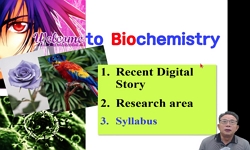The present study investigated the relationship between phonological loops, visuospatial sketchpad, episodic buffers, and grammar skills in children with a language delay (LD). Forty-seven children with typical language development (TD) and 21 LD chil...
http://chineseinput.net/에서 pinyin(병음)방식으로 중국어를 변환할 수 있습니다.
변환된 중국어를 복사하여 사용하시면 됩니다.
- 中文 을 입력하시려면 zhongwen을 입력하시고 space를누르시면됩니다.
- 北京 을 입력하시려면 beijing을 입력하시고 space를 누르시면 됩니다.

언어발달지체 아동의 음운루프, 시․공간 잡기장, 일화적 완충기, 억제기능과 문법 능력 간의 관계 = Phonological Loops, Visuospatial Sketchpad, Episodic Buffers, and Inhibition: The Relationship with Grammar Skills in Children with a Language Delay
한글로보기https://www.riss.kr/link?id=A106370027
- 저자
- 발행기관
- 학술지명
- 권호사항
-
발행연도
2019
-
작성언어
Korean
-
주제어
language disorders ; working memory ; phonological loop ; visuospatial sketchpad ; episodic buffers ; inhibition ; central executive ; 언어발달지체 ; 작업기억 ; 음운루프 ; 시공간 잡기장 ; 일화적 완충기 ; 억제기능 ; 중앙집행기
-
등재정보
KCI등재
-
자료형태
학술저널
- 발행기관 URL
-
수록면
183-204(22쪽)
-
KCI 피인용횟수
4
- DOI식별코드
- 제공처
-
0
상세조회 -
0
다운로드
부가정보
다국어 초록 (Multilingual Abstract)
The present study investigated the relationship between phonological loops, visuospatial sketchpad, episodic buffers, and grammar skills in children with a language delay (LD). Forty-seven children with typical language development (TD) and 21 LD children conducted four working memory tasks and grammaticality judgment tasks. Through two-way mixed ANOVA and t-tests, the results revealed that LD children showed significantly lower performances on all working memory tasks. In addition, grammar skills in TD children were predicted by episodic buffers and visuospatial sketchpad, whereas a phonological loop was the only predictor of grammar skills in LD children. The study suggests that language intervention should include information organizing skills in order to improve processing efficiency. We also recommend minimizing distractors for better intervention outcomes.
국문 초록 (Abstract)
본 연구는 효과적인 언어 중재를 위해 고려해야 할 아동의 정보 처리 특성을 논의하고자 Baddeley의 4요인 작업기억 모델을 바탕으로 아동의 음운루프, 시․공간 잡기장, 중앙집행기의 일화적 ...
본 연구는 효과적인 언어 중재를 위해 고려해야 할 아동의 정보 처리 특성을 논의하고자 Baddeley의 4요인 작업기억 모델을 바탕으로 아동의 음운루프, 시․공간 잡기장, 중앙집행기의 일화적 완충기, 억제기능 특성을 살펴보았다. 만 4-6세 일반 아동 47명, 언어발달지체 아동 21명을 대상으로 작업기억 각 하위요소를 측정하는 과제를 실시하고 이원혼합분산분석, t-검정을 실시하였다. 연구 결과, 언어발달지체 아동은 비언어성 일화적 완충기와 시․공간 잡기장 과제를 제외한 대부분의 언어성 작업기억 과제에서 일반 아동보다 수행이 유의하게 낮았다. 단계적 회귀분석을 실시하여 집단 별 문법 능력 예측요인을 살펴본 결과, 일반 집단은 일화적 완충기와 시․공간 잡기장, 언어발달지체 집단은 음운루프가 문법 능력을 유의하게 예측하였다. 본 연구는 언어발달지체 아동은 효율적으로 정보를 조직하여 기억과 인출을 용이하게 하는 작업기억 기제에 결함이 있으며 비언어정보 처리 기제는 상대적으로 보존되어 있다는 근거를 제시하였다. 이에 중재는 아동의 인지 부하를 최소화 할 수 있는 정보 조직 전략을 교수하고 방해 자극을 최소화할 때 효과적일 것으로 기대한다.
참고문헌 (Reference)
1 서울대학교 국어교육연구소, "한국어교육학사전" 하우 2014
2 김호정, "한국어 학습자의 문법 지식 측정을 위한 문법성 판단 테스트 개발의 쟁점과 과제" 국어교육연구소 (41) : 417-455, 2018
3 임동선, "학령전기 단순언어장애 및 일반아동의 문법성 메타언어인식과 집행기능 수행능력 비교분석" 한국언어치료학회 24 (24): 345-359, 2015
4 양윤희, "학령기 단순언어장애 아동의 어휘학습 예측요인: 의미점화 및 간섭 효과" 한국언어청각임상학회 20 (20): 1-12, 2015
5 양윤희, "학령 전 어휘발달지체 및 일반 아동의 비단어 따라 말하기, 빠른 우연학습(Quick Incidental Learning)과 수용어휘와의 관계" 한국언어청각임상학회 18 (18): 379-391, 2013
6 도경수, "텍스트 유형과 작업기억이 읽기 정상 아동과 읽기 지진 아동의 텍스트 이해에 미치는 영향" 한국인지과학회 17 (17): 191-206, 2006
7 김영태, "취학전 아동의 수용언어 및 표현언어 발달척도(PRES)" 서울장애인종합복지관 2003
8 정대영, "초등학교 수학학습장애아동과 수학학습부진아동의 수감각과 작업기억 비교" 한국특수교육학회 45 (45): 71-90, 2011
9 최세민, "작업기억과 교수전략이 학습장애학생의 수학문장제문제 해결능력과 초인지수준 및정의적 특성에 미치는 효과" 36 (36): 267-291, 2001
10 임동선, "언어장애아동 판별을 위한 구어 및 시공간적 작업기억의 효용성 탐색" 한국언어청각임상학회 21 (21): 193-205, 2016
1 서울대학교 국어교육연구소, "한국어교육학사전" 하우 2014
2 김호정, "한국어 학습자의 문법 지식 측정을 위한 문법성 판단 테스트 개발의 쟁점과 과제" 국어교육연구소 (41) : 417-455, 2018
3 임동선, "학령전기 단순언어장애 및 일반아동의 문법성 메타언어인식과 집행기능 수행능력 비교분석" 한국언어치료학회 24 (24): 345-359, 2015
4 양윤희, "학령기 단순언어장애 아동의 어휘학습 예측요인: 의미점화 및 간섭 효과" 한국언어청각임상학회 20 (20): 1-12, 2015
5 양윤희, "학령 전 어휘발달지체 및 일반 아동의 비단어 따라 말하기, 빠른 우연학습(Quick Incidental Learning)과 수용어휘와의 관계" 한국언어청각임상학회 18 (18): 379-391, 2013
6 도경수, "텍스트 유형과 작업기억이 읽기 정상 아동과 읽기 지진 아동의 텍스트 이해에 미치는 영향" 한국인지과학회 17 (17): 191-206, 2006
7 김영태, "취학전 아동의 수용언어 및 표현언어 발달척도(PRES)" 서울장애인종합복지관 2003
8 정대영, "초등학교 수학학습장애아동과 수학학습부진아동의 수감각과 작업기억 비교" 한국특수교육학회 45 (45): 71-90, 2011
9 최세민, "작업기억과 교수전략이 학습장애학생의 수학문장제문제 해결능력과 초인지수준 및정의적 특성에 미치는 효과" 36 (36): 267-291, 2001
10 임동선, "언어장애아동 판별을 위한 구어 및 시공간적 작업기억의 효용성 탐색" 한국언어청각임상학회 21 (21): 193-205, 2016
11 김신영, "어휘발달지체 아동을 대상으로 한 작업기억 중재가 작업기억 및 언어능력에 미치는 영향" 한국언어청각임상학회 20 (20): 469-489, 2015
12 김설민, "알츠하이머병에서의 시공간 작업기억 특성" 대한생물정신의학회 16 (16): 238-245, 2009
13 신미경, "수학 문장제 문제해결력과 작업기억 간 상관관계에 대한 메타분석" 한국특수교육학회 54 (54): 61-89, 2019
14 김영태, "수용․ 표현 어휘력 검사(Receptive & Expressive Vocabulary Test; REVT)" 서울장애인종합복지관 2009
15 임동선, "단순언어장애 아동과 일반 아동의 작업기억 제시방식 및 과제유형에 따른 수행능력 비교" 한국언어청각임상학회 20 (20): 13-23, 2015
16 Alloway, T., "Working memory in children with developmental disorders" 42 (42): 372-382, 2009
17 Casasanto, L., "Understanding acceptability judgments: Additivity and working memory effects" 32 (32): 224-229, 2010
18 Rudner, M., "The role of the episodic buffer in working memory for language processing" 9 (9): 19-28, 2008
19 Bjorklund, D., "The resources construct in cognitive development : Diverse sources of evidence and a theory of inefficient inhibition" 10 : 48-71, 1990
20 Blake, J., "The relationship between memory span and measures of imitative and spontaneous language complexity in preschool children" 17 (17): 91-107, 1994
21 Friedman, N. P., "The relations among inhibition and interference control functions : A latent-variable analysis" 133 (133): 101-135, 2004
22 Repovš, G., "The multi-component model of working memory : Explorations in experimental cognitive psychology" 139 (139): 5-21, 2006
23 Conti-Ramsden, G., "The extent to which psychometric tests differentiate subgroups of children with specific language impairment" 40 (40): 765-777, 1997
24 Baddeley, A., "The episodic buffer: a new component of working memory?" 4 (4): 417-423, 2000
25 Schütze, C. T., "The empirical base of linguistics: Grammaticality judgments and linguistic methodology" Language Science Press 2016
26 Daneman, M., "Syntactic form, semantic complexity, and short-term memory : Influences on children's acquisition of new linguistic structures" 17 (17): 367-378, 1981
27 Fortunato-Tavares, T., "Syntactic comprehension and working memory in children with specific language impairment, autism or Down syndrome" 29 (29): 499-522, 2015
28 Archibald, L., "Short‐term and working memory in specific language impairment" 41 (41): 675-693, 2006
29 Gillam, R. B., "Sequential memory in children with and without language impairment" 38 (38): 393-402, 1995
30 Polišenská, K., "Sentence repetition: What does the task measure?" 50 (50): 106-118, 2015
31 Archibald, L., "Rethinking the connection between working memory and language impairment" 51 (51): 252-264, 2016
32 Gorman, B., "Relationships between vocabulary size, working memory, and phonological awareness in spanish-speaking english language learners" 21 (21): 109-123, 2012
33 Baddeley, A., "Prose recall and amnesia : Implications for the structure of working memory" 40 (40): 1737-1743, 2002
34 Archibald, L., "On the sensitivity and specificity of nonword repetition and sentence recall to language and memory impairments in children" 52 (52): 899-914, 2009
35 Salamé, P., "Noise, unattended speech and short-term memory" 30 (30): 1185-1194, 1987
36 Yim, D., "Mother tongue influence on linguistic & non-linguistic skills in culturally & linguistically diverse children" 2018
37 Adams, A., "Limitations in working memory : Implications for language development" 35 (35): 95-116, 2000
38 Tallal, P., "Language and reading : Some perceptual prerequisites" 30 (30): 170-178, 1980
39 문수백, "K-ABC 교육⋅심리측정도구 (Korean-Kaufman assessment battery for children: K-ABC)" 학지사 2003
40 Barkley, R., "Inhibition, sustained attention, and executive functions : Constructing a unified theory of ADHD" 121 : 65-94, 1997
41 Marton, K., "Inhibition control and working memory capacity in children with SLI" 50 (50): 110-121, 2007
42 Saffran J., "Infant statistical learning" 69 : 181-120, 2018
43 Swanson, H. L., "Individual and age-related differences in children’s working memory" 24 (24): 70-82, 1996
44 Archibald, S., "Identification and description of new tests of executive functioning in children" 5 (5): 115-129, 1999
45 Verhagen, J., "How do verbal short-term memory and working memory relate to the acquisition of vocabulary and grammar? A comparison between first and second language learners" 141 : 65-82, 2016
46 McDonald, J., "Grammaticality judgments in children : The role of age, working memory and phonological ability" 35 (35): 247-268, 2008
47 Rice, M., "Grammatical tense deficits in children with SLI and nonspecific language impairment" 47 (47): 816-834, 2004
48 Hughes, C., "Executive function in preschoolers : Links with theory of mind and verbal ability" 16 (16): 233-253, 1998
49 Noterdaeme, M., "Evaluation of attention problems in children with autism and children with a specific language disorder" 10 (10): 58-66, 2001
50 Bor, D., "Encoding strategies dissociate prefrontal activity from working memory demand" 37 (37): 361-367, 2003
51 Noonan, N., "Contributions of children's linguistic and working memory proficiencies to their judgments of grammaticality" 57 (57): 979-989, 2014
52 Montgomery, J., "Complex sentence comprehension and working memory in children with specific language impairment" 52 (52): 269-288, 2009
53 Rönnberg, J., "Cognition counts: A working memory system for ease of language understanding (ELU)" 47 (47): S99-S105, 2008
54 Chomsky, N., "Aspects of the theory of syntax" MITPress 1965
55 Cowan, N., "Age differences in visual working memory capacity : Not based on encoding limitations" 14 (14): 1066-1074, 2011
56 Bishop, D., "Acoustic cues used in speech perception" 387 (387): 130-, 1997
57 Hutchinson, E., "A comparison of working memory profiles in school-aged children with specific language impairment, attention deficit/hyperactivity disorder, comorbid SLI and ADHD and their typically developing peers" 18 : 190-207, 2012
58 천소연, "A comparative study of chunking mechanism in children with and without language delay" 한국언어청각임상학회 22 (22): 233-244, 2017
59 양윤희, "4-6세 단순언어장애 및 일반아동의 암묵적 학습 및 문법성 판단 능력의 관계" 한국언어청각임상학회 22 (22): 35-46, 2017
60 오경민, "4,5세 정상발달아동과 언어발달장애아동의 억제조절 및 작업기억과 언어능력과의 관계" 한국언어청각임상학회 13 (13): 263-281, 2008
61 오다연, "2-3세 말 늦은 아동과 정상 아동의 비단어따라말하기와 문장 따라말하기 수행 능력" 한국언어청각임상학회 18 (18): 277-287, 2013
동일학술지(권/호) 다른 논문
-
개별화교육계획 운영 실제와 지원요구에 대한 개별화교육지원팀 구성원의 경험과 인식
- 한국특수교육학회
- 배성현
- 2019
- KCI등재
-
특수학교 기반 사회정서학습이 지적장애 학생의 사회정서지식, 사회정서 기술 및 또래 간 상호작용에 미친 영향
- 한국특수교육학회
- 남혜진
- 2019
- KCI등재
-
통합교육현장에서의 장애학생 인권현황과 인권존중을 위한 요건 탐색
- 한국특수교육학회
- 이정은
- 2019
- KCI등재
-
소집단 활동을 통한 가족중심 미래계획 프로그램이 발달장애 청소년의 자기효능감 및 자립역량, 부모의 자아탄력성 및 가족역량강화에 미치는 영향
- 한국특수교육학회
- 정지희
- 2019
- KCI등재
분석정보
인용정보 인용지수 설명보기
학술지 이력
| 연월일 | 이력구분 | 이력상세 | 등재구분 |
|---|---|---|---|
| 2027 | 평가예정 | 재인증평가 신청대상 (재인증) | |
| 2021-01-01 | 평가 | 등재학술지 유지 (재인증) |  |
| 2018-01-01 | 평가 | 등재학술지 유지 (등재유지) |  |
| 2015-01-01 | 평가 | 등재학술지 유지 (등재유지) |  |
| 2011-01-01 | 평가 | 등재학술지 유지 (등재유지) |  |
| 2009-01-01 | 평가 | 등재학술지 유지 (등재유지) |  |
| 2007-01-01 | 평가 | 등재학술지 유지 (등재유지) |  |
| 2006-08-09 | 학술지등록 | 한글명 : 특수교육학연구외국어명 : Korean Jounral of Special Education |  |
| 2005-01-27 | 학회명변경 | 영문명 : The Korean Society For Special Education -> The Korean Society of Special Education |  |
| 2004-01-01 | 평가 | 등재학술지 선정 (등재후보2차) |  |
| 2003-01-01 | 평가 | 등재후보 1차 PASS (등재후보1차) |  |
| 2001-07-01 | 평가 | 등재후보학술지 선정 (신규평가) |  |
학술지 인용정보
| 기준연도 | WOS-KCI 통합IF(2년) | KCIF(2년) | KCIF(3년) |
|---|---|---|---|
| 2016 | 0.99 | 0.99 | 1.18 |
| KCIF(4년) | KCIF(5년) | 중심성지수(3년) | 즉시성지수 |
| 1.23 | 1.3 | 1.503 | 0.5 |




 KCI
KCI 스콜라
스콜라




